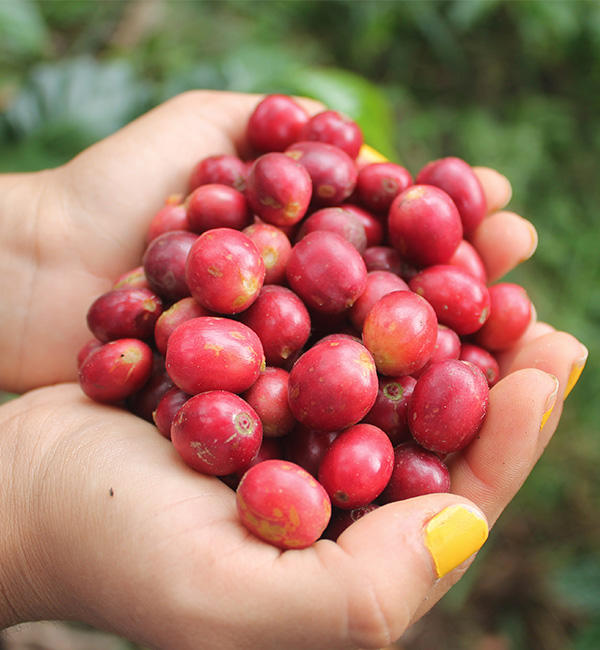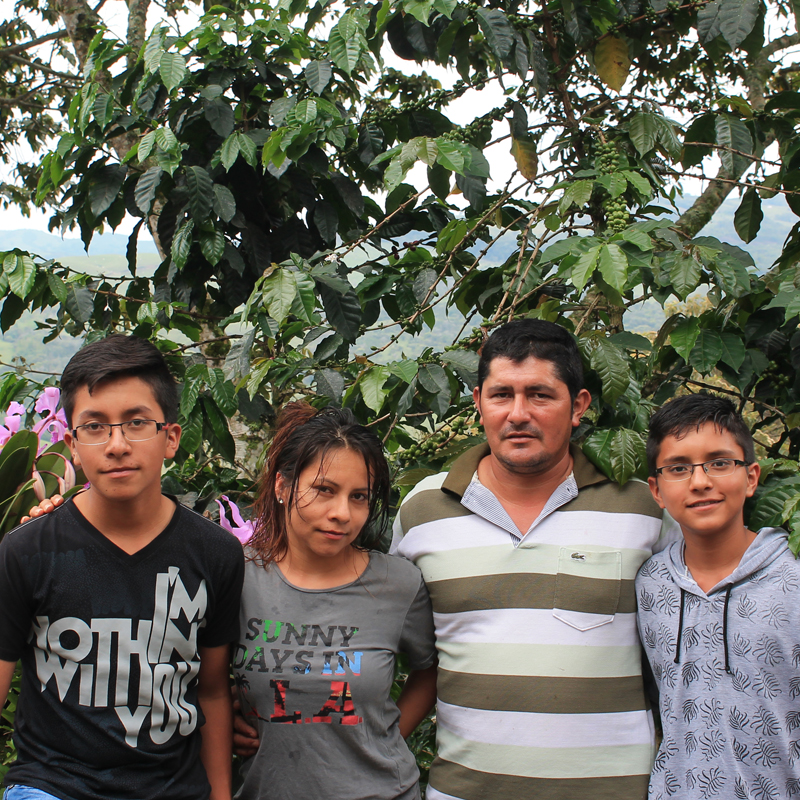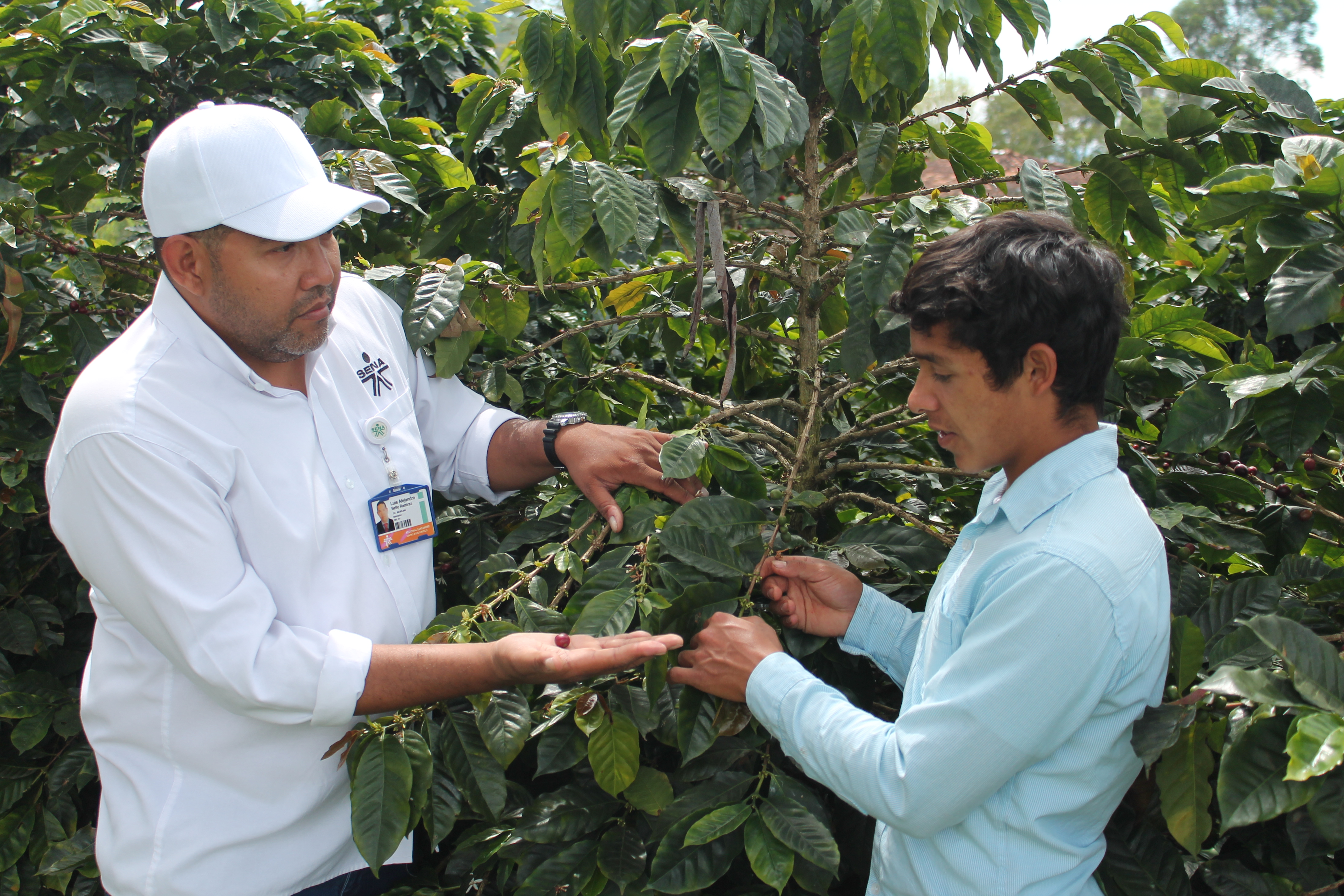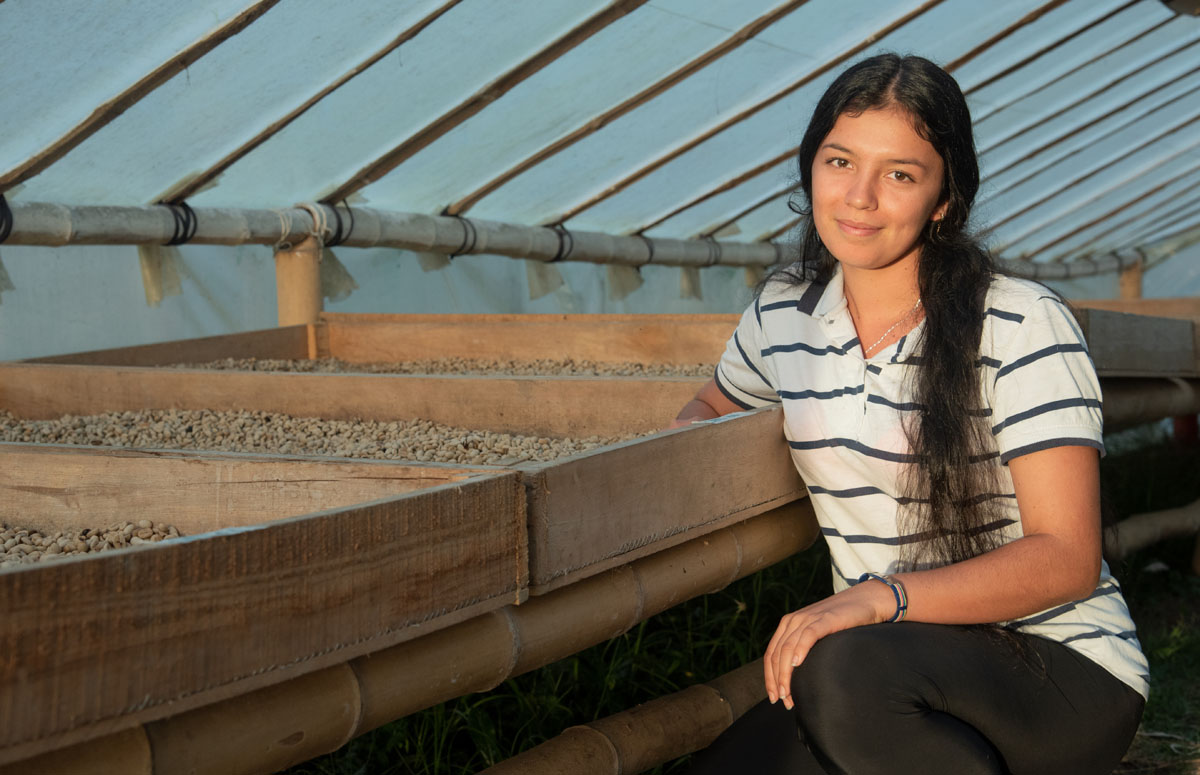Colombia: a new generation of coffee entrepreneurs

Revaluing coffee growing
Having suffered through more than 50 years of armed conflict, Colombia’s history is a tumultuous one. And the civil war with the FARC has also affected the Santander coffee-growing region. Entire communities around coffee growing disappeared or were expelled from the plantations. The knowledge about coffee growing was lost and is not replaced in their education, as a result of which young people see no future in it. That's why they are often moving to cities to find economic stability.
New insights, continuing challenges
The A new generation of coffee entrepreneurs project is the successor of Education for the Future in Santander, that took place between October 2014 and February 2018. With 100 graduated coffee farmers and 200,000 new coffee plants, that project was a huge success. The logical decision was to continue in the direction we had already taken. With our partners (EFICO foundation, FNC and SENA), we have been continuing the project since 2018 and extended it to 2025. The first evaluation of the current project was very promising again. However, the challenges from the previous projects continue to require attention.
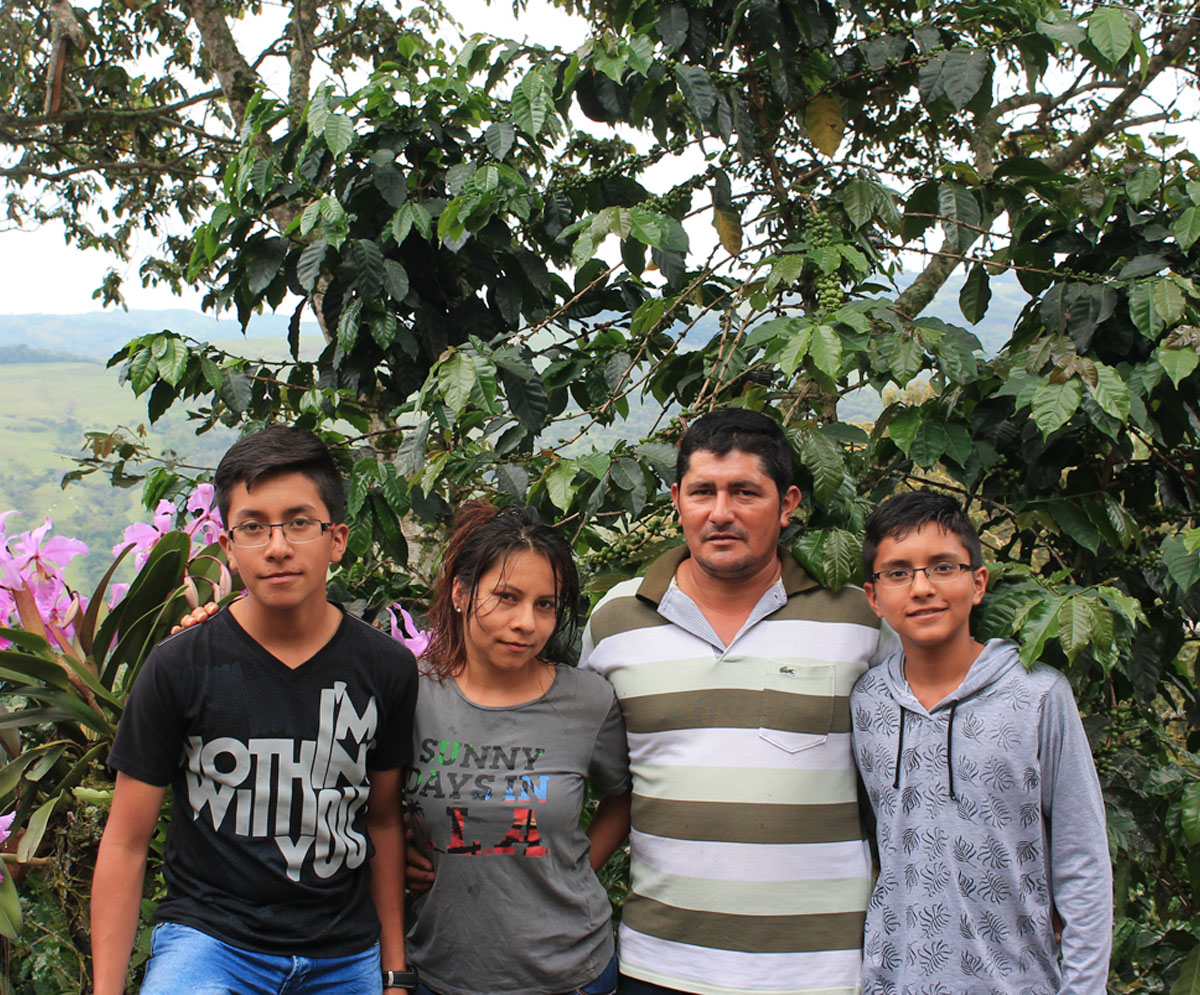
Young people migrate to the city
The interest and involvement of young people in coffee growing had gone missing due to the lack of education. Continued attention and relevant education are needed to create opportunities locally for the new generation, which should keep them from migrating to the cities.Climate concerns
There is still work to be done when it comes to disease control, soil analysis and shade creation. The potential impact of weather phenomena such as El niño and La niña also needs to be reduced to ensure sustainable and profitable coffee production.
Ageing coffee plantations
Strong efforts should be made to ensure continuous growth of coffee plants. Too little consideration is given to production cycles, resulting in ageing coffee plants. This can eventually lead to reduced yields, quality and, consequently, income.
Supporting entrepreneurial young people
The Santander project wants to support young people in growing coffee in a productive, profitable, qualitative and eco-friendly manner. In the El Playón, Matanza, Rionegor, Floridablanca, Tona, Bucaramanga, Piedecuesta and San Andrés regions, young men and women are trained to become inspiring entrepreneurs by giving them knowledge of the entire coffee chain:
- They are trained in the entire process: crop management, harvest, post-harvest, quality, but also marketing and certification.
- Their skills in leadership, entrepreneurship and collaboration are strengthened.
Towards sustainable coffee communities
Concrete objectives are used to deal with the challenges. The short-term and long-term objectives of the project are very broad, ranging from the social aspect to economics and the environment. In a nutshell:
- Inspiring coffee entrepreneurs
By the end of the project, the 100 young people become independent leaders. They not only know how to produce quality coffee but also how to market it. - Focus on profitability and sustainability
The young people are able to develop productive, profitable and sustainable plantations, and thus increase the quality of life. The goal: planting an additional 450,000 coffee plants over a 3-year period. - Involvement creates social tissue
The young entrepreneurs become the owner of their company and no longer migrate to the city. Existing coffee plantations invest in better food supply with maize, beans and chickens in addition to coffee plants. Coffee communities arise, with generation change and regional anchoring. - Continuous improvement
In the long run, thanks to the increase of the number of young people with coffee plantations even more expertise and a higher coffee quality are expected, with respect for the environment. The profitability creates better circumstances, such as more food security, renovation and expansion.
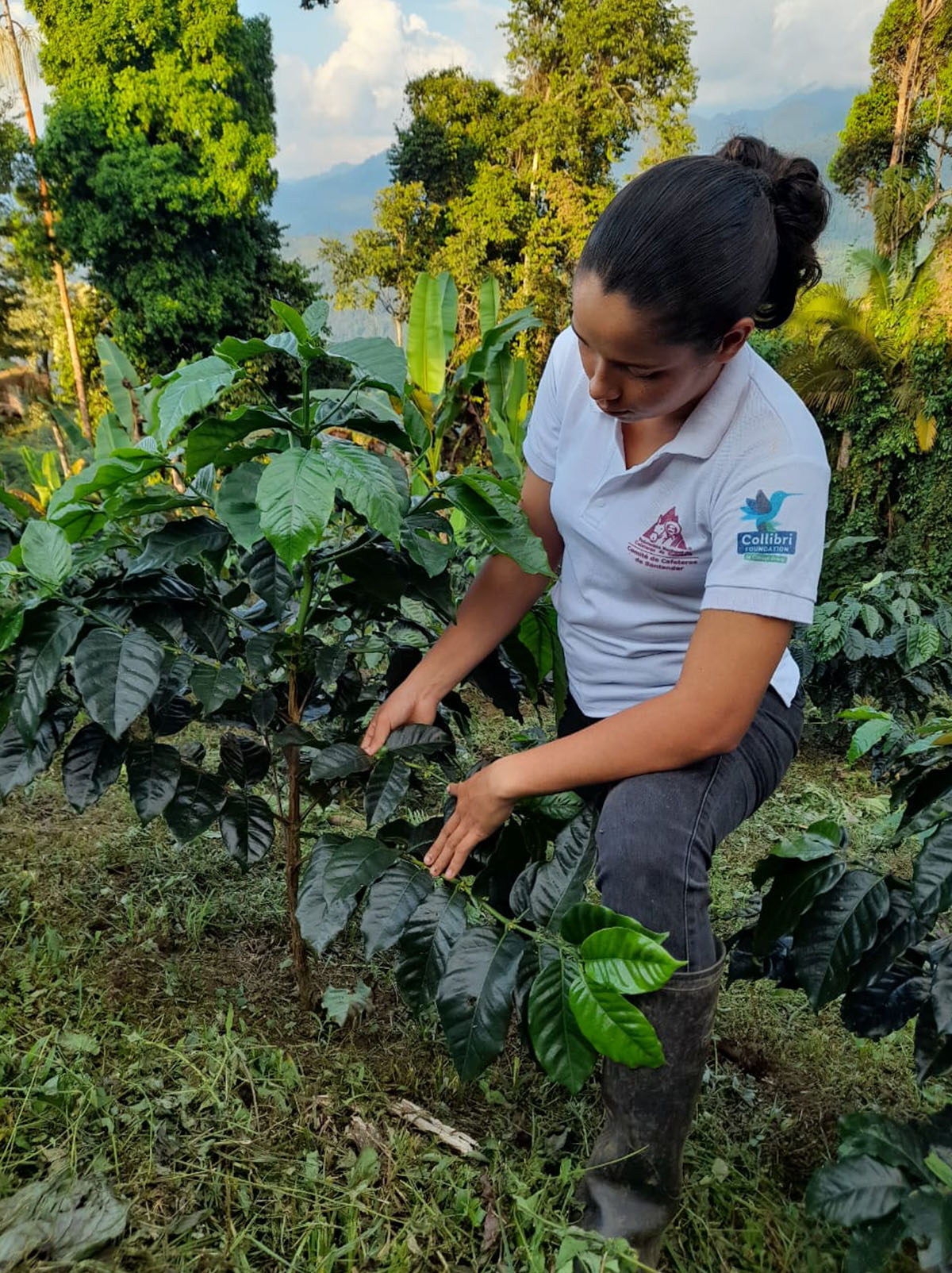
This education project with the support of Collibri Foundation is linked to the sustainable chaing projects set up for coffee and tea by Colruyt Group. This creates a more sustainable offer for customers in the stores of Colruyt Lowest Prices, Okay and Bio-Planet. The aim: to improve the living and working circumstances of the coffee growers and stimulate a sustainable and eco-friendly crop. As an added bonus, the young people are trained to be sustainable entrepreneurs thanks to the education project.
